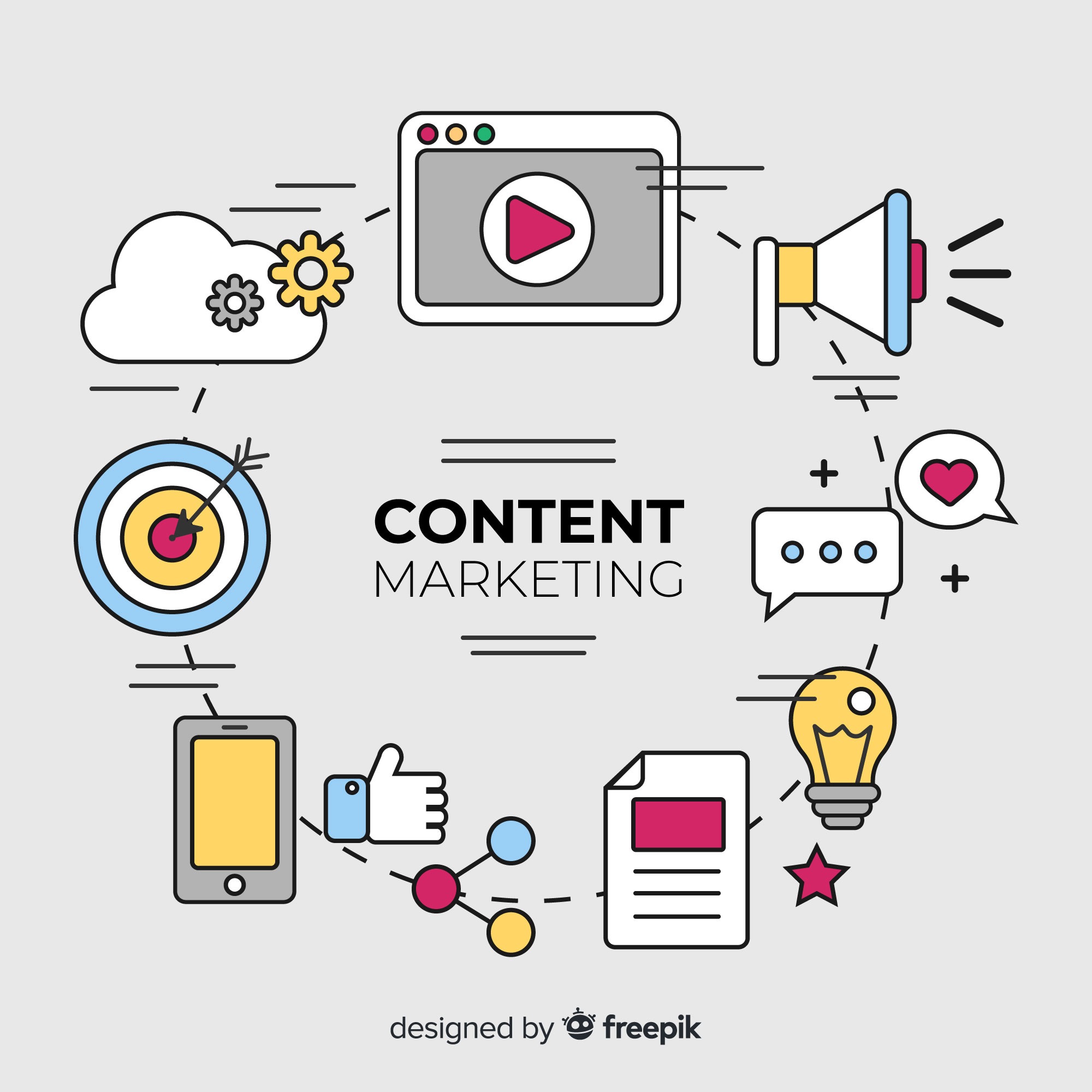The realm of marketing tech continues to advance at an unprecedented pace. As businesses strive to maintain a competitive edge, understanding and leveraging the latest trends in marketing tech becomes crucial. In 2024, several key developments are set to shape the future of marketing tech, offering innovative solutions and new opportunities for brands to connect with their audiences.
Table of Contents
- The Rise of Artificial Intelligence and Machine Learning
- The Integration of Augmented Reality (AR) and Virtual Reality (VR)
- The Growing Importance of Data Privacy and Security
- The Shift to Omnichannel Marketing
- The Expansion of Influencer Marketing
- The Evolution of Content Marketing
- The Role of Voice Search and Smart Speakers
- The Emergence of Blockchain in Marketing Tech
- The Importance of Sustainable Marketing
- Conclusion
The Rise of Artificial Intelligence and Machine Learning
Artificial intelligence (AI) and machine learning (ML) are no longer futuristic concepts; they are integral components of modern marketing strategies. In 2024, AI and ML will further transform marketing tech by enabling hyper-personalization and predictive analytics. According to Statista:
- The Artificial Intelligence market is projected to reach US$244.22 billion by 2025.
- It is expected to grow at a CAGR of 26.60% from 2025 to 2031.
- By 2031, the market size is anticipated to hit US$1.01 trillion.
- The United States is expected to be the largest market globally, reaching US$73.98 billion in 2025.
Hyper-Personalization
Consumers today expect personalized experiences tailored to their preferences and behaviors. Marketing tech driven by AI can analyze vast amounts of data to create highly personalized marketing campaigns. For instance, AI can segment audiences based on their past interactions, purchasing behavior, and online activity. This level of personalization enhances customer engagement and drives higher conversion rates.
Predictive Analytics
Predictive analytics, powered by machine learning, allows marketers to forecast future trends and consumer behaviors. By analyzing historical data, ML algorithms can identify patterns and predict outcomes, enabling businesses to make informed decisions. In 2025, predictive analytics will become more sophisticated, helping marketers to optimize their strategies and allocate resources more efficiently.
The Integration of Augmented Reality (AR) and Virtual Reality (VR)
Augmented reality (AR) and virtual reality (VR) are revolutionizing the way brands interact with their customers. These immersive technologies are becoming increasingly accessible, and their integration into marketing tech is set to soar in 2024. Statista’s data says that:
- The global AR & VR market is projected to generate US$46.6 billion in revenue by 2025.
- Revenue is expected to grow at a CAGR of 7.42% from 2025 to 2029.
- By 2029, the market is forecasted to reach a total volume of US$62.0 billion.
- The largest segment will be AR Software, with a projected market volume of US$14.0 billion in 2025.
- The United States is expected to lead in revenue, generating approximately US$12.6 billion in 2025.
Enhanced Customer Experience
AR and VR offer unique opportunities for creating engaging and interactive customer experiences. For example, AR can be used in mobile apps to allow customers to visualize products in their own environment before making a purchase. VR, on the other hand, can provide immersive brand experiences, such as virtual store tours or interactive product demonstrations.
Innovative Advertising
Marketing tech that incorporates AR and VR can also enhance advertising efforts. Brands can create captivating advertisements that capture the attention of their audience and leave a lasting impression. As these technologies become more widespread, we can expect to see an increase in AR and VR ads across various platforms.
The Growing Importance of Data Privacy and Security
As marketing tech evolves, so do concerns about data privacy and security. In 2024, businesses will need to prioritize these issues to build and maintain trust with their customers.
Compliance with Regulations
With the introduction of stricter data protection regulations worldwide, companies must ensure compliance to avoid hefty fines and reputational damage. Marketing tech solutions will need to incorporate robust data security measures and transparent data handling practices. This includes obtaining explicit consent from users before collecting their data and providing them with options to manage their privacy settings.
Building Trust with Consumers
In an era where data breaches are increasingly common, consumers are becoming more cautious about sharing their personal information. Businesses that prioritize data privacy and security will be better positioned to build trust with their audience. Marketing tech that emphasizes transparency and ethical data practices will be essential in fostering long-term customer relationships.
The Shift to Omnichannel Marketing

Consumers today interact with brands across multiple channels, from social media and websites to physical stores. In 2024, the shift to omnichannel marketing will continue to gain momentum, with marketing tech playing a crucial role in delivering seamless and consistent experiences.
Unified Customer Profiles
Marketing tech solutions will enable the creation of unified customer profiles by integrating data from various touchpoints. This holistic view of the customer allows businesses to deliver personalized and relevant experiences across all channels. For example, a customer who browses products on a brand’s website can receive personalized recommendations when they visit the physical store.
Consistent Messaging
Omnichannel marketing requires consistent messaging across all platforms. Marketing tech can help streamline communication by ensuring that all marketing efforts are aligned and cohesive. Automated workflows and centralized content management systems will be instrumental in maintaining brand consistency and delivering a unified message to the audience.
The Expansion of Influencer Marketing
Influencer marketing has become a powerful tool for reaching and engaging target audiences. In 2024, marketing tech will further enhance influencer marketing strategies, making them more effective and measurable.
Advanced Analytics
Marketing tech will provide advanced analytics to measure the impact of influencer marketing campaigns. These tools can track key performance indicators (KPIs) such as engagement rates, conversion rates, and return on investment (ROI). By analyzing this data, businesses can identify the most effective influencers and optimize their campaigns for better results.
Micro-Influencers
While celebrity influencers have dominated the scene, there is a growing trend towards partnering with micro-influencers. These individuals have smaller but highly engaged audiences, making them ideal for niche marketing. Marketing tech can help identify and connect with relevant micro-influencers, allowing brands to tap into specific communities and drive authentic engagement.
The Evolution of Content Marketing

Content marketing remains a cornerstone of digital marketing strategies. In 2024, the evolution of content marketing will be driven by advancements in marketing tech, enabling brands to create and distribute high-quality content more efficiently.
AI-Powered Content Creation
AI-powered tools are transforming content creation by automating repetitive tasks and generating high-quality content. From writing blog posts and social media updates to creating videos and graphics, AI can significantly reduce the time and effort required. In 2024, more businesses will leverage AI to produce personalized and relevant content at scale.
Interactive Content
Interactive content, such as quizzes, polls, and interactive videos, is gaining popularity for its ability to engage audiences. Marketing tech will facilitate the creation and distribution of interactive content, allowing brands to capture and hold the attention of their audience. Interactive content also provides valuable insights into customer preferences and behaviors, which can be used to inform future marketing strategies.
The Role of Voice Search and Smart Speakers

Voice search and smart speakers are transforming the way consumers search for information and interact with brands. In 2024, marketing tech will need to adapt to this shift and optimize strategies for voice search.
Voice Search Optimization
As more consumers use voice assistants like Alexa and Google Assistant, optimizing content for voice search will become essential. Marketing tech can help identify relevant voice search keywords and create content that is easily discoverable through voice queries. This includes optimizing website content, creating voice-friendly FAQs, and ensuring that local business information is accurate and up-to-date.
Voice-Activated Shopping
Smart speakers are also driving the rise of voice-activated shopping. Consumers can use their voice to search for products, make purchases, and reorder items. Marketing tech can facilitate voice-activated shopping by integrating with e-commerce platforms and providing a seamless shopping experience. Brands that optimize their online stores for voice search will be better positioned to capture this growing market.
The Emergence of Blockchain in Marketing Tech
Blockchain technology, known for its applications in cryptocurrency, is making its way into marketing tech. In 2024, blockchain will play a significant role in enhancing transparency and trust in digital advertising.
Transparent Advertising
Blockchain can provide a transparent and immutable ledger of all advertising transactions. This transparency helps combat ad fraud, ensuring that ad impressions and clicks are genuine. Marketing tech solutions that incorporate blockchain will enable advertisers to verify the authenticity of their campaigns and improve the overall effectiveness of their ad spend.
Data Security
Blockchain technology also enhances data security by providing decentralized and tamper-proof storage of customer data. This can help businesses address privacy concerns and comply with data protection regulations. Marketing tech that leverages blockchain for data security will be crucial in building trust with consumers and safeguarding their information.
The Importance of Sustainable Marketing
Sustainability is becoming a key consideration for consumers and businesses alike. In 2024, marketing tech will support sustainable marketing practices, helping brands reduce their environmental impact and appeal to eco-conscious consumers.
Green Marketing Campaigns
Marketing tech can facilitate the creation of green marketing campaigns that highlight a brand’s commitment to sustainability. This includes promoting eco-friendly products, using sustainable packaging, and reducing carbon footprints. By leveraging marketing tech, businesses can effectively communicate their sustainability efforts and resonate with environmentally conscious audiences.
Sustainable Advertising Practices
Sustainable advertising practices, such as reducing digital ad waste and minimizing energy consumption, will become more prevalent. Marketing tech can optimize ad delivery to ensure that ads are shown to the right audience at the right time, reducing unnecessary impressions and energy usage. Brands that adopt sustainable advertising practices will not only contribute to environmental conservation but also enhance their reputation among consumers.
Conclusion
The future of marketing tech in 2024 is marked by exciting advancements and transformative trends. From AI-driven personalization and immersive AR/VR experiences to the growing importance of data privacy and sustainable practices, marketing tech is poised to reshape the digital marketing landscape. Businesses that stay ahead of these trends and leverage innovative marketing tech solutions will be well-positioned to connect with their audiences, drive engagement, and achieve their marketing goals. As we move forward, the integration of cutting-edge technologies and ethical practices will be key to unlocking the full potential of marketing tech.
Andrej Fedek is the creator and the one-person owner of two blogs: InterCool Studio and CareersMomentum. As an experienced marketer, he is driven by turning leads into customers with White Hat SEO techniques. Besides being a boss, he is a real team player with a great sense of equality.
